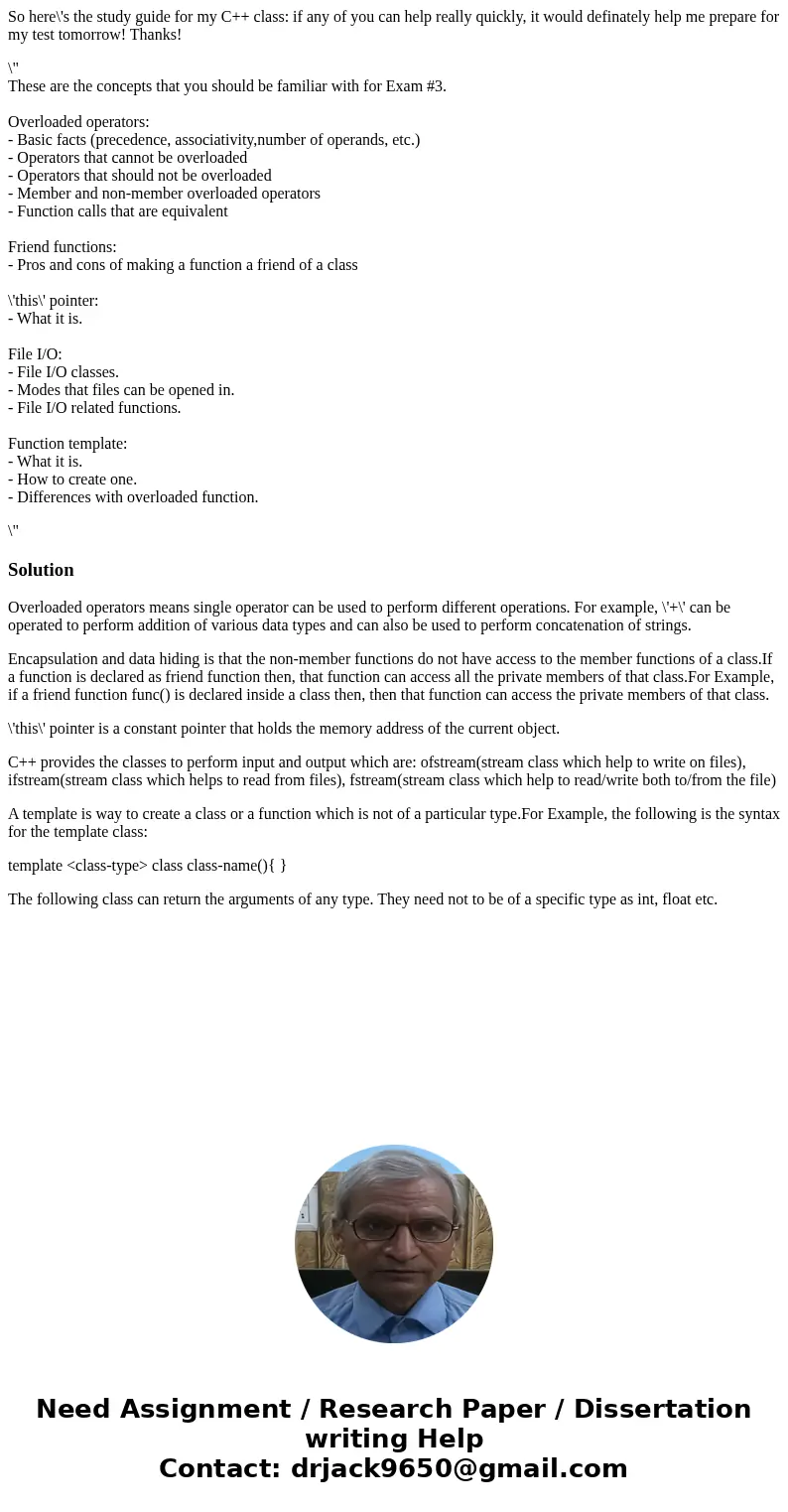So heres the study guide for my C class if any of you can he
So here\'s the study guide for my C++ class: if any of you can help really quickly, it would definately help me prepare for my test tomorrow! Thanks!
\"
These are the concepts that you should be familiar with for Exam #3.
Overloaded operators:
- Basic facts (precedence, associativity,number of operands, etc.)
- Operators that cannot be overloaded
- Operators that should not be overloaded
- Member and non-member overloaded operators
- Function calls that are equivalent
Friend functions:
- Pros and cons of making a function a friend of a class
\'this\' pointer:
- What it is.
File I/O:
- File I/O classes.
- Modes that files can be opened in.
- File I/O related functions.
Function template:
- What it is.
- How to create one.
- Differences with overloaded function.
\"
Solution
Overloaded operators means single operator can be used to perform different operations. For example, \'+\' can be operated to perform addition of various data types and can also be used to perform concatenation of strings.
Encapsulation and data hiding is that the non-member functions do not have access to the member functions of a class.If a function is declared as friend function then, that function can access all the private members of that class.For Example, if a friend function func() is declared inside a class then, then that function can access the private members of that class.
\'this\' pointer is a constant pointer that holds the memory address of the current object.
C++ provides the classes to perform input and output which are: ofstream(stream class which help to write on files), ifstream(stream class which helps to read from files), fstream(stream class which help to read/write both to/from the file)
A template is way to create a class or a function which is not of a particular type.For Example, the following is the syntax for the template class:
template <class-type> class class-name(){ }
The following class can return the arguments of any type. They need not to be of a specific type as int, float etc.

 Homework Sourse
Homework Sourse